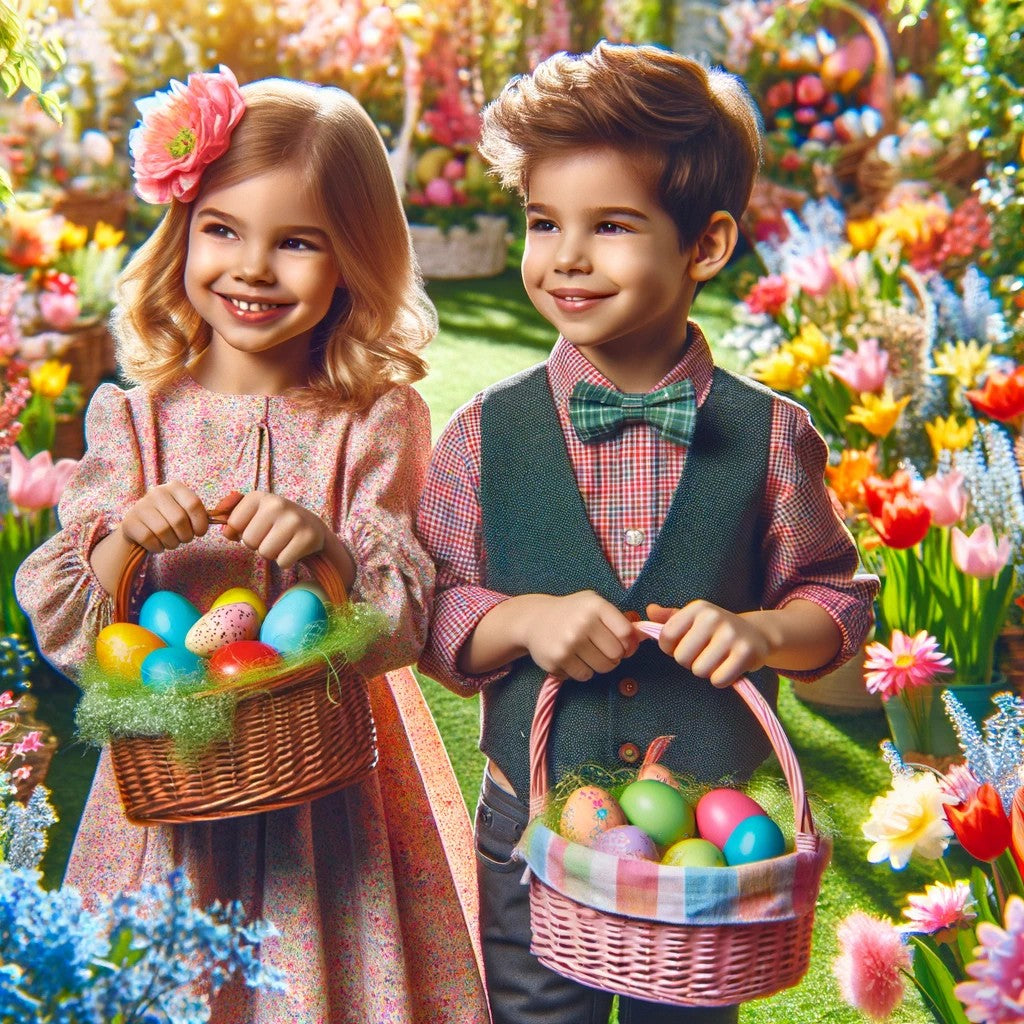
Easter Explained: Origins, Significance, and Global Celebrations
Easter Explained: Origins, Significance, and Global Celebrations
Easter, at its core, is a Christian holiday that celebrates the resurrection of Jesus Christ from the dead, as described in the New Testament of the Bible. It is the culmination of the Passion of Jesus, preceded by Lent, 40 days of fasting, prayer, and penance. Easter is considered the foundation of the Christian faith, symbolizing the triumph of life over death and offering believers the hope of eternal life.
The specific day of Easter varies each year, determined by the lunar calendar—falling on the first Sunday after the first full moon occurring on or after the vernal equinox. While Easter has deep religious significance, it also incorporates various pre-Christian, pagan traditions celebrating spring, renewal, and fertility, which is where symbols such as the Easter bunny and Easter eggs come into play. These symbols have become widely recognized parts of Easter celebrations, blending religious beliefs with cultural traditions to mark a season of renewal, joy, and hope across the world.
Easter is a celebration rich in history and varied in its global observances. From the history and origins of Easter celebrations to unique Easter customs from around the globe, this holiday intertwines religious significance with ancient traditions. Whether it's exploring the significance of Easter in different cultures or uncovering the Easter symbols and their origins, our journey will delve into how Easter is both a solemn religious holiday and a joyful celebration of spring.
Introducing Easter: Beyond the Bunny and Eggs
Easter's history extends beyond its Christian roots, merging ancient pagan traditions of spring renewal with the commemoration of Jesus Christ's resurrection. This holiday embodies a multifaceted significance, serving as a period of reflection, renewal, and joy across various cultures worldwide. Its celebrations, rich in symbols and rituals, offer a glimpse into the interconnectedness of human history and the universal themes of life, death, and rebirth. Easter's origins trace back to ancient pagan rituals celebrating spring's renewal, which later intertwined with Christian traditions commemorating the resurrection of Jesus Christ. Over the centuries, this fusion of beliefs has evolved into a global observance, blending religious solemnity with cultural festivities. Today, Easter is marked by a diverse array of customs worldwide, reflecting its rich historical tapestry and the universal themes of renewal and hope.
Easter Across Cultures: A Tapestry of Traditions
Easter is celebrated with a vibrant mosaic of traditions worldwide, from the water fights in Poland's Śmigus-Dyngus to the majestic Easter parades in Spain. Each country brings its unique customs to the fore, such as the intricate egg decorating seen in Ukraine's pysanky or the dawn dances of the Bermudian kite-flying festival. These diverse practices highlight the universal themes of renewal and joy that Easter brings to different cultures across the globe
The Easter Table: Festive Foods and Traditions
The Easter Table is a vibrant showcase of cultural heritage, featuring an array of festive foods that symbolize renewal and joy. From the sweet richness of Simnel cake in the UK to the savoury goodness of lamb dishes in various countries, each tradition reflects the spirit of the season. These culinary practices, coupled with family gatherings, highlight Easter's role in fostering community and togetherness.
The role of the Easter Bunny in Easter history
The Easter Bunny, a symbol of fertility and new life, originates from pre-Christian traditions and was later incorporated into Easter celebrations as a bringer of joy and sweets. In Easter history, this cheerful character is tasked with delivering Easter eggs, representing the rebirth of spring and new beginnings. Today, the Easter Bunny is a beloved figure in many cultures, symbolizing the light-hearted and hopeful essence of the holiday.
Easter eggs: history, significance, and traditions
Easter eggs, originally symbolizing rebirth and new life, have roots in pagan traditions that predate Christianity. Over the centuries, they've evolved into a key symbol of Easter, representing Jesus' resurrection and the promise of eternal life. Today, decorating eggs, egg hunts, and egg rolling are cherished traditions worldwide, blending historical significance with family fun. The role of the Easter Bunny in Easter history and the tradition of Easter eggs beautifully encapsulates the essence of the holiday, blending ancient customs with cherished contemporary practices. The Easter Bunny, springing from folklore that celebrates fertility and renewal, has become a beloved harbinger of joy, distributing Easter eggs that symbolize new life and rebirth. These eggs, with their rich history, significance, and varied traditions, from being dyed and decorated to being hidden and hunted, serve as a testament to Easter's enduring appeal. Together, they reflect a tapestry of beliefs and customs that enrich our modern Easter celebrations, embodying themes of hope, renewal, and communal joy.
Global Celebrations: Easter Around the World
Easter is celebrated with vibrant diversity around the globe, from the flamboyant parades and colourful festivities in Brazil that fill the streets with joy and dance, to the solemn, reverent processions in Spain, where hooded penitents march in silence, evoking deep spiritual reflection. This contrast highlights the rich tapestry of cultural traditions that give Easter its worldwide resonance, embodying a range of emotions from jubilation to contemplation.
Reflecting on Easter: Its Role in Today’s World
Easter's enduring relevance lies in its ability to bring communities and families together, reflecting on themes of renewal, hope, and redemption. It bridges the gap between ancient traditions and contemporary values, playing a pivotal role in religious observances and secular spring celebrations alike. Through its impact on society, faith, and family traditions, Easter continues to offer a moment of reflection and joy, uniting people across the globe in a shared experience of rebirth and new beginnings.


